30 Nov - 11 Dec, 2015 / Paris
CO2GEONET
contribution
to COP21


The Paris Agreement calls for emission pathways consistent with ‘holding the increase in the global average temperature to well below 2 °C above pre-industrial levels and pursuing efforts to limit the temperature increase to 1.5 °C’. As described by COP President, Laurent Fabius, this is both a ‘final point’ (because a global political consensus has been reached) and a ‘starting point’ (because all the practical actions have still to be defined).
In terms of reaching this historic agreement, the approach taken played a critical role. In his speech, Laurent Fabius said ‘During this Paris conference we wanted to host, work and prepare the agreement in the best possible conditions. I had announced a method involving listening, transparency, ambition and a search for compromise. A COP in which each party could feel heard and understood, I hope that together we have achieved this’.
Since being established as a European Network of Excellence in 2004, CO2GeoNet is using a similar approach, working together in as transparent a manner as possible, listening to each point of view and striving to make the science of geological storage of CO2 understandable to all.
For reducing emissions, the Paris Agreement is a critical turning point. Now it has to be agreed how these targets will be achieved. CO2GeoNet is keen to play its role in achieving these targets, with regards to advancing science of, and communicating on, the geological storage of CO2.
At COP21, CO2GeoNet engaged with stakeholders to communicate the science that supports Carbon dioxide Capture and Storage (CCS) as an important technology for climate change mitigation. The CO2GeoNet Association draws together a large community of 26 public research institutes in 19 European countries, fully committed to further developing the science supporting geological storage of CO2 as a key part of moving towards a low carbon future.
CO2GeoNet is a pan-European scientific Association, legally registered in France, which joins together 26 partners from 19 European countries, ranging from national geological surveys, through to research institutes and universities, all with a high international profile and critical mass in CO2 geological storage research.
CO2GeoNet is acknowledged as the European scientific authority dealing with all aspects of geological storage of CO2. Through its activities of collaborative research, information and communication, training and scientific advice, CO2GeoNet is durably engaged in enabling the safe and efficient deployment of the CO2 Capture and Storage (CCS) technology in order to mitigate climate change and ocean acidification.
CO2GeoNet is contributing, in collaboration with other international organisations, to side-events and booths at COP21, in the UNFCCC negotiation zone, open only to accredited negotiators and observers, and in the Climate Generations Areas, open to the general public, both held in Le Bourget site in the Northeastern suburbs of Paris.
Our role in COP21 is to provide clear and impartial scientific knowledge and to engage in discussions with negotiators and the civil society. Our aim is to communicate on CCS as a proven and safe technology, which is vital for reducing CO2 emissions and completing the climate change mitigation portfolio.
Take a browse through this website, to have access to presentations and materials made available during the mentioned events.
CO2GeoNet est une association scientifique pan-européenne, enregistrée légalement en France. Elle comprend 26 membres de 19 pays européens différents: services géologiques, universités, instituts de recherche. Tous sont reconnus internationalement pour leur expertise sur le stockage géologique de CO2
CO2GeoNet est reconnu comme la référence scientifique européenne sur tous les aspects liés au stockage géologique de CO2. A travers ses activités allant de la recherche conjointe à l'information et la communication en passant par la formation et le conseil scientifique, CO2GeoNet est durablement engagé pour permettre le déploiement effectif et en toute sécurité de la technologie du Captage et Stockage du CO2 (CSC) pour lutter contre le changement climatique et l’acidification des océans.
Avec d’autres organisations internationales, CO2GeoNet contribue à des sessions parallèles (« side-events ») et stands d’exposition de la COP21 sur le site du Bourget à Paris, aussi bien dans la zone de négociation à accès restreint que dans les « Espaces Générations Climat » ouverte au grand public.
Le rôle de CO2GeoNet dans la COP21 est de fournir des connaissances scientifiques, claires et impartiales, et de participer à des échanges avec les négociateurs et la société civile. Le but est de faire connaitre le CSC, une technologie éprouvée et sûre qui est cruciale pour réduire les émissions de CO2 et compléter l’ensemble des mesures d’atténuation du changement climatique. Cette site rassemble l
Cliquez sur les événements ci-dessous pour découvrir les différents documents qui seront disponibles durant la COP21.
1 year of CCS at Boundary Dam, the world’s first full-scale project on a coal power plant; 19 years of CCS in the North Sea region; CCS policies; EU pilot projects; and new project collaboration opportunities at Boundary Dam and in offshore storage open to developing countries and CTC (Climate Technology Centre and Network).
Organizer: University of Texas at Austin
Co-organizers: CO2GeoNet, Carbon Capture and Storage Association, IEAGHG
The ambition of the European Union is to deliver a secure, competitive and sustainable energy system, while reducing GHG emissions by at least 40% by 2030 on 1990 levels. The scale of the challenge is proportionate to an “energy revolution”, in which the mitigation potential of CCS must be supported. Key players from research organisations, major CCS knowledge networks and initiatives as well as key policy makers in Europe will discuss with the audience the status and way forward for CCS as part of Europe’s low carbon future.
Organizer: CO2GeoNet
Co-organizers: European Energy Research Alliance, Global CCS Institute, EuroGeoSurveys
Information on Carbon Capture and Storage as a climate-change mitigation technology, energy resource development, capacity building and training, and continuous regulatory improvement. Information from The University of Texas at Austin, CO2GeoNet, Carbon Capture and Storage Association, and IEAGHG.
Organizer: University of Texas at Austin
Co-organizers: CO2GeoNet, Carbon Capture and Storage Association
Le stockage dans le sous-sol du CO2 capté au niveau des installations industrielles (production de gaz, d’électricité, ciment, acier…) est une technologie clé pour réduire les émissions de CO2 et peut même permettre de générer des bilans carbone négatifs s’il est combiné au captage du CO2 sur des centrales à biomasse ou directement de l’atmosphère. Des synergies sont envisageables avec d’autres technologies telles que la géothermie, le stockage d’énergie et diverses voies d’utilisation du CO2. Un point sera fait sur les réalisations concrètes en France et dans le monde (plus de 20 Mt de CO2 par an actuellement captées puis injectées dans le sous-sol), suivi d’un débat avec le public pour discuter de l’intérêt de cette technologie et des défis posés pour accélérer son déploiement à grande échelle afin de permettre de limiter le réchauffement climatique à 2°C.
The underground storage of the CO2 captured at industrial facilities (production of gas, electricity, cement, steel ...) is a key technology for reducing CO2 emissions and can even help to generate negative emissions when it is combined with CO2 capture at biomass plants or directly from the atmosphere. Synergies are possible with other technologies such as geothermal, energy storage and various CO2 uses. An update will be made on concrete operations in France and in the world (over 20 Mt of CO2 per year currently captured and then injected in deep geological formations), followed by an interactive session with the audience to discuss the role of this technology and the challenges facing full-scale deployment in the race to limit global warming to 2°C.
Organizer: CO2GeoNet
Co-organizers: International Energy Agency, Global CCS Institute, French Club CO2
Venez découvrir le Captage et Stockage de CO2 (CSC):
Venez rencontrer des experts de différentes organisations* et profitez des différents éléments sur le stand : brochures, petites expériences, échantillons de roche et sélection de vidéos.
Come and find out more about CCS (CO2 Capture and Storage):
Professional experts from several organisations will be on hand to discuss CO2 geological storage (CGS) with visitors. Various materials will be on display for visitors including reports and brochures (such as the CO2GeoNet brochure available in 28 languages), technical reports, some hands-on experiments and rock samples of typical reservoir and cap rocks and a selection of educational videos. In line with the COP policy on reducing paper waste, QR codes will be used to allow visitors to download published material.
Organizer: CO2GeoNet
Co-organizers: Global CCS Institute, IEA Greenhouse Gas R&D Programme, French Club CO2, University of Texas at Austin
Contributions also from: European CCS Demonstration Project Network, e2050-University of Sheffield, ISO TC 265
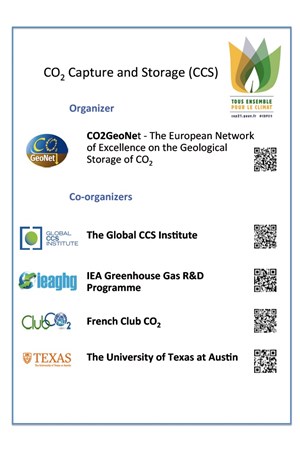
CO2GeoNet
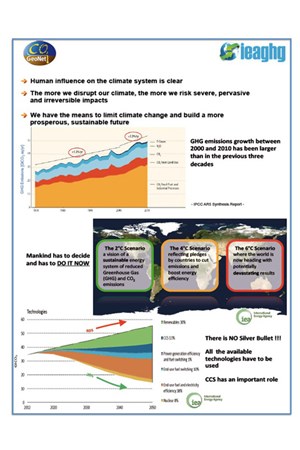
CO2GeoNet - IEAGHG
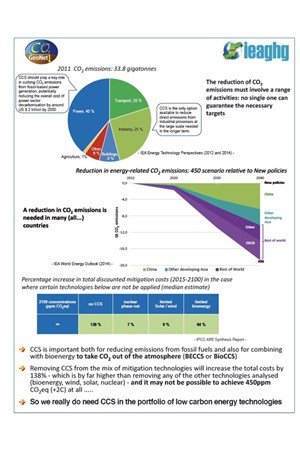
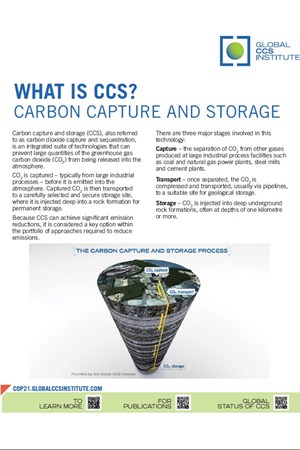
Global CCS Institute
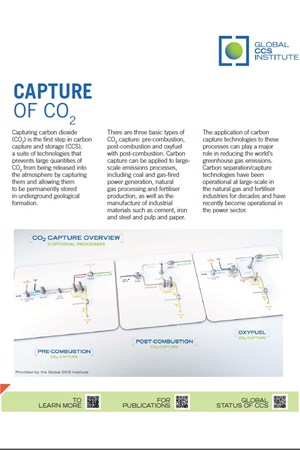
Global CCS Institute
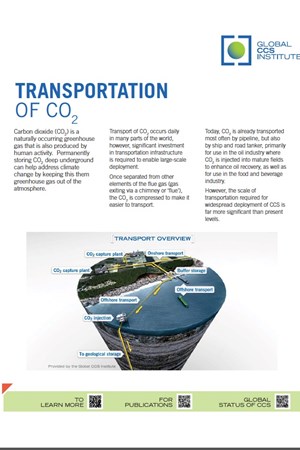
Global CCS Institute

Global CCS Institute
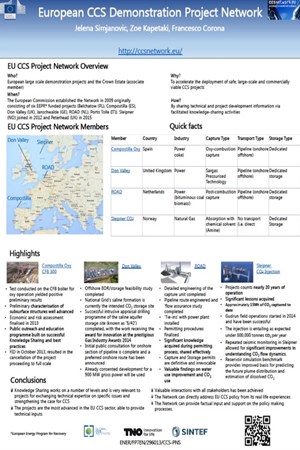
CCS Network EU
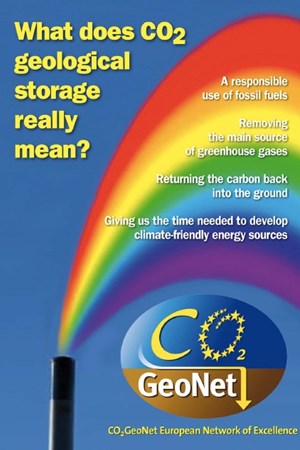
CO2GeoNet
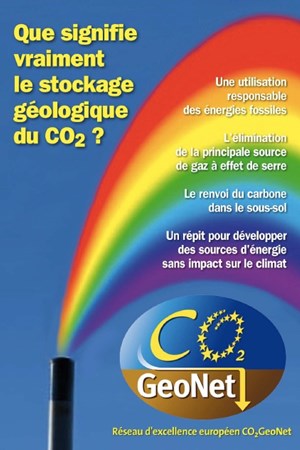
CO2GeoNet
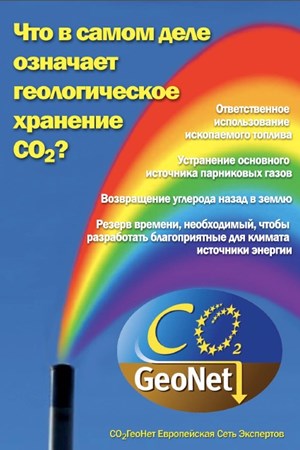
CO2GeoNet
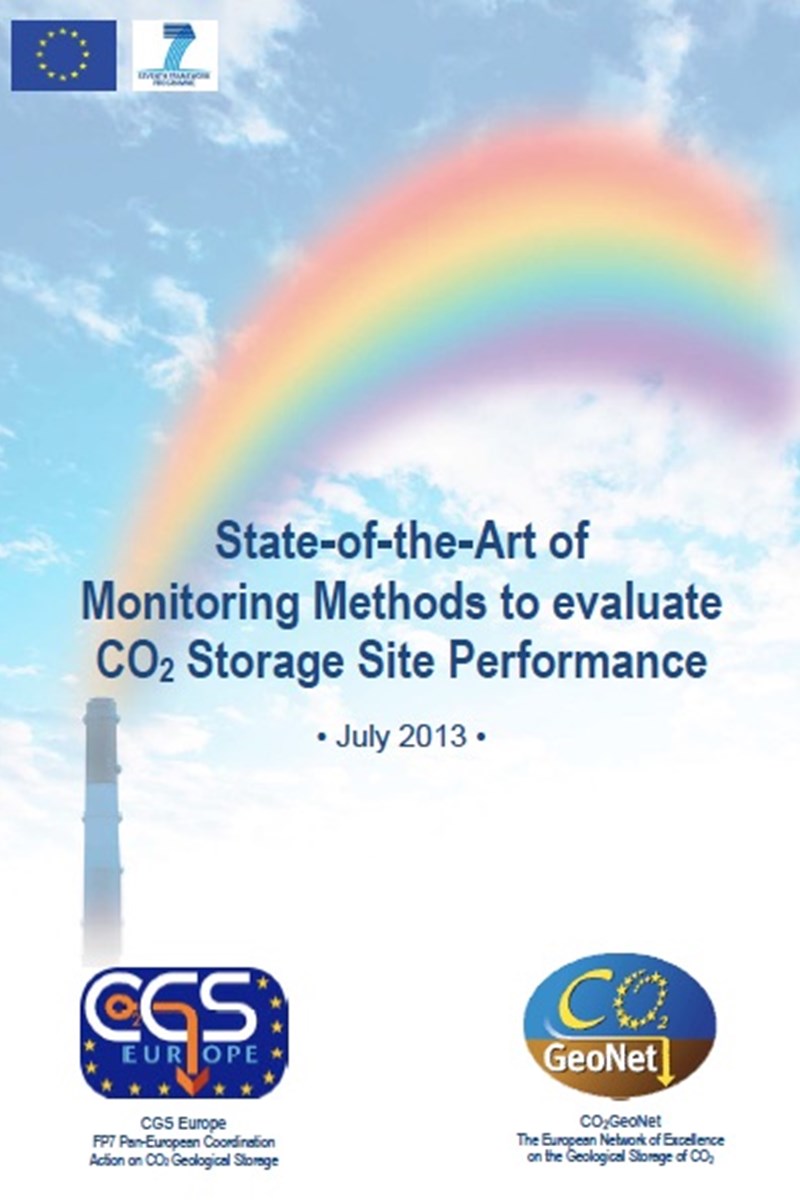
CO2GeoNet
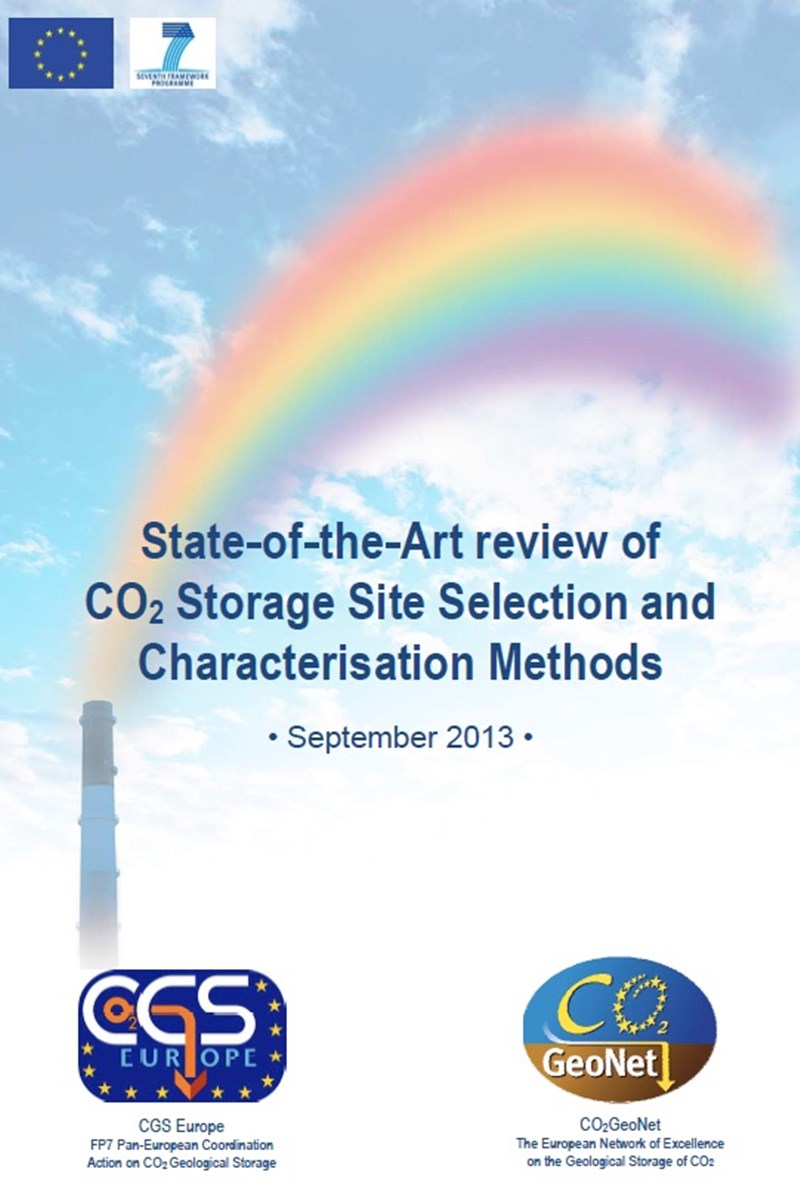
CO2GeoNet

CO2GeoNet

CO2GeoNet

CO2GeoNet
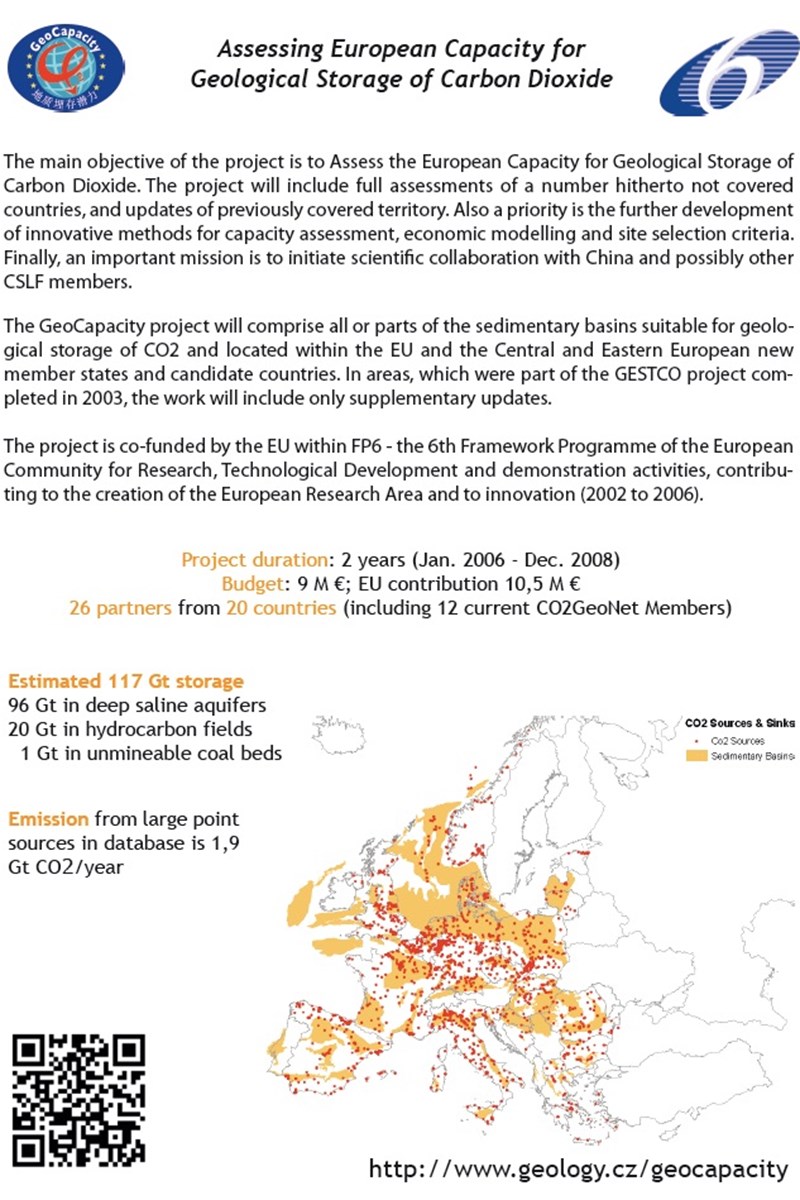
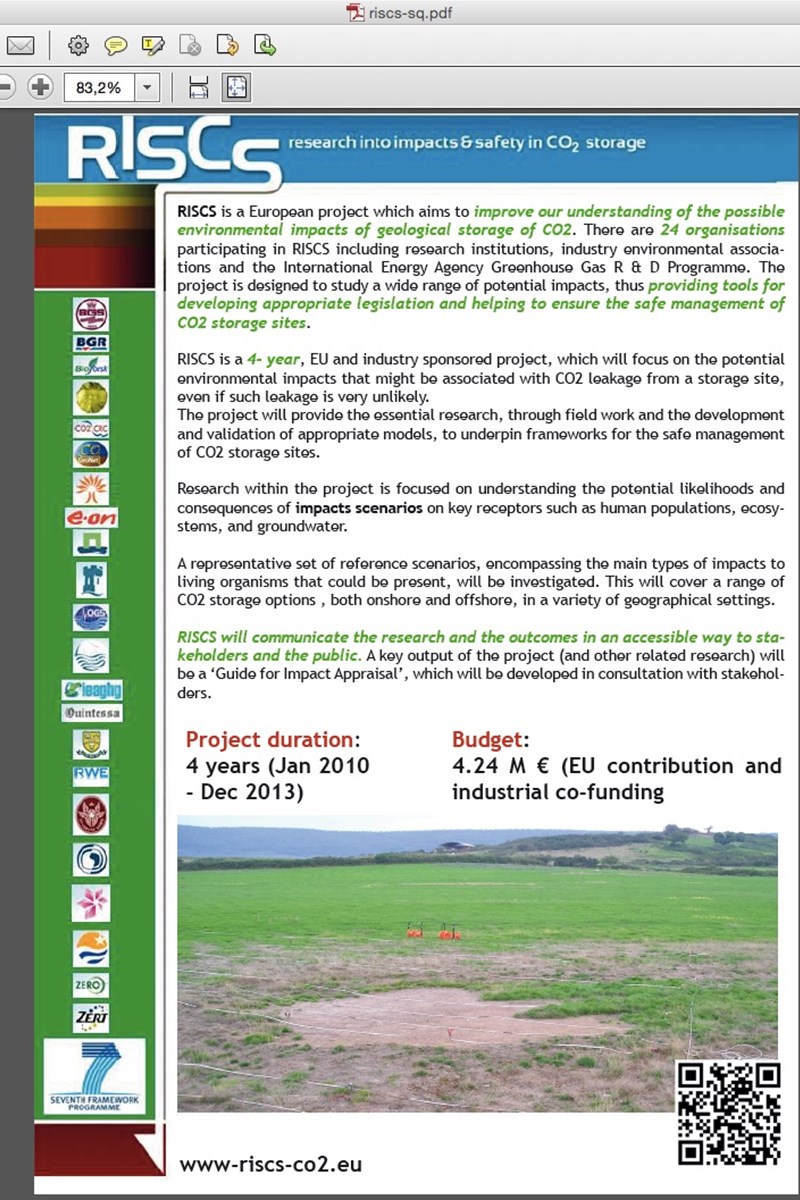
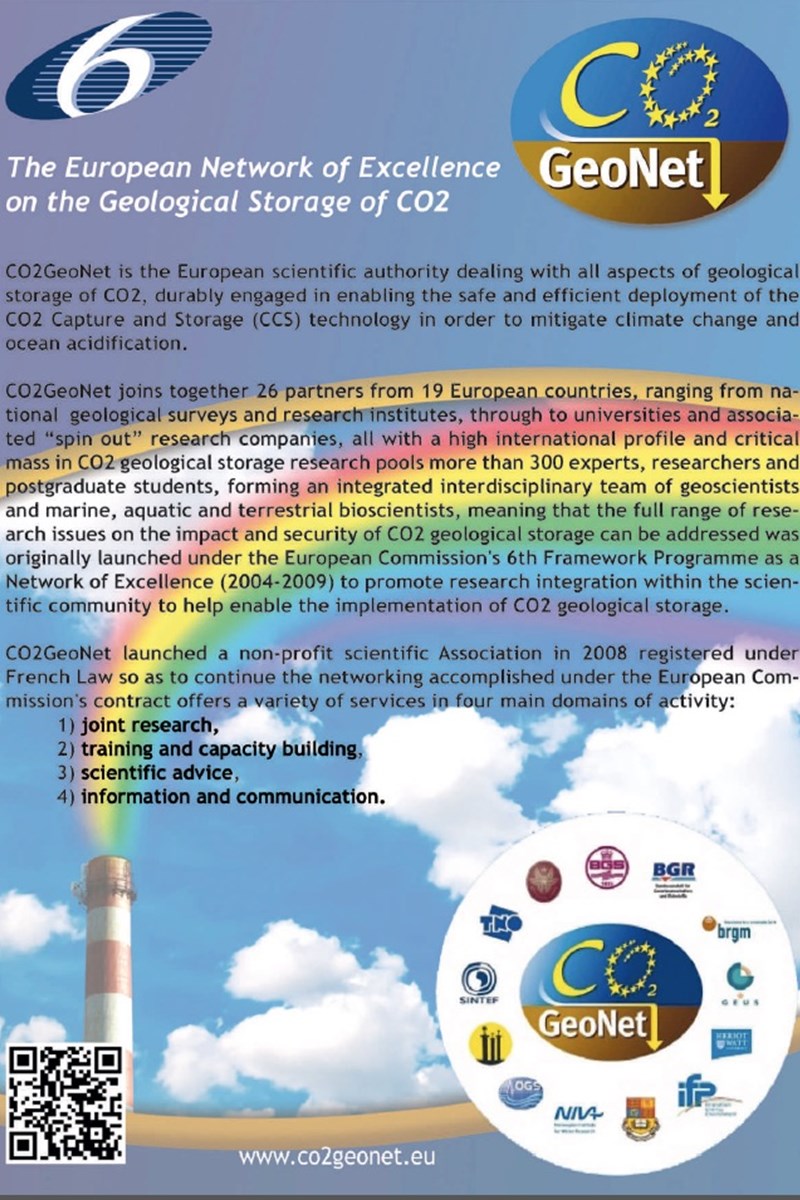

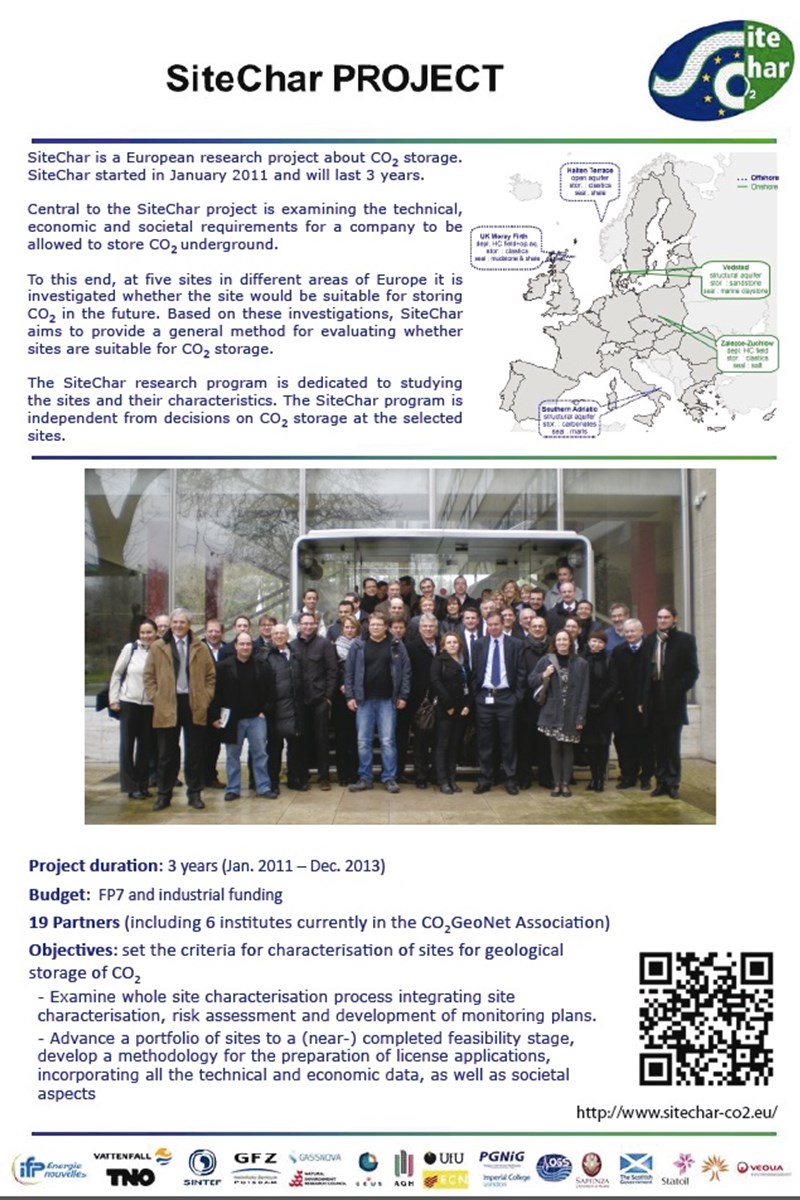
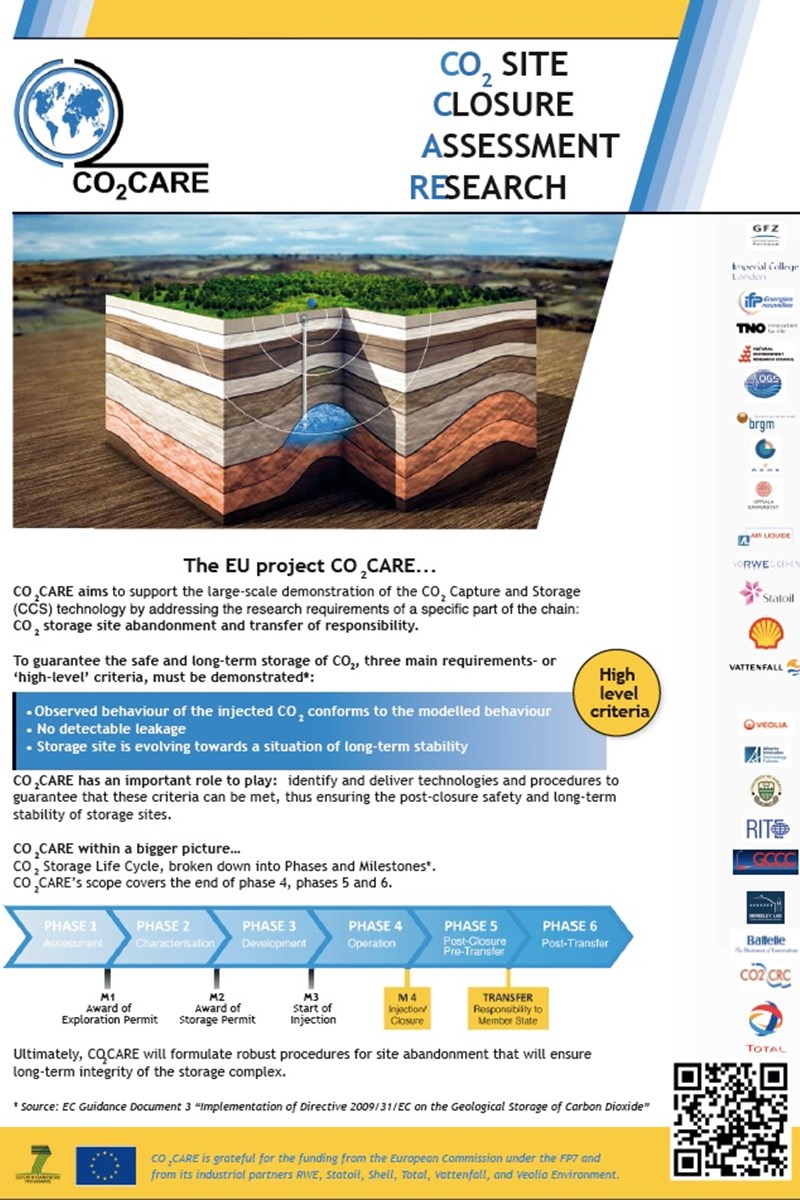
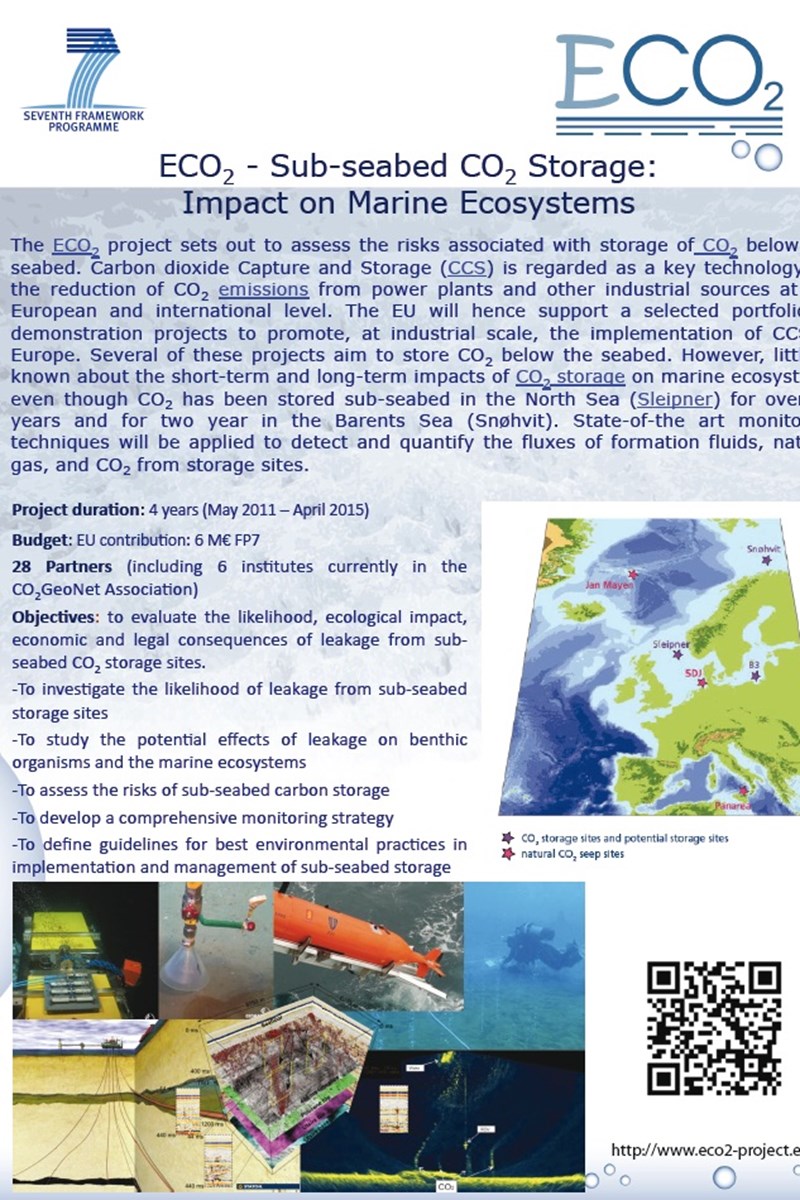
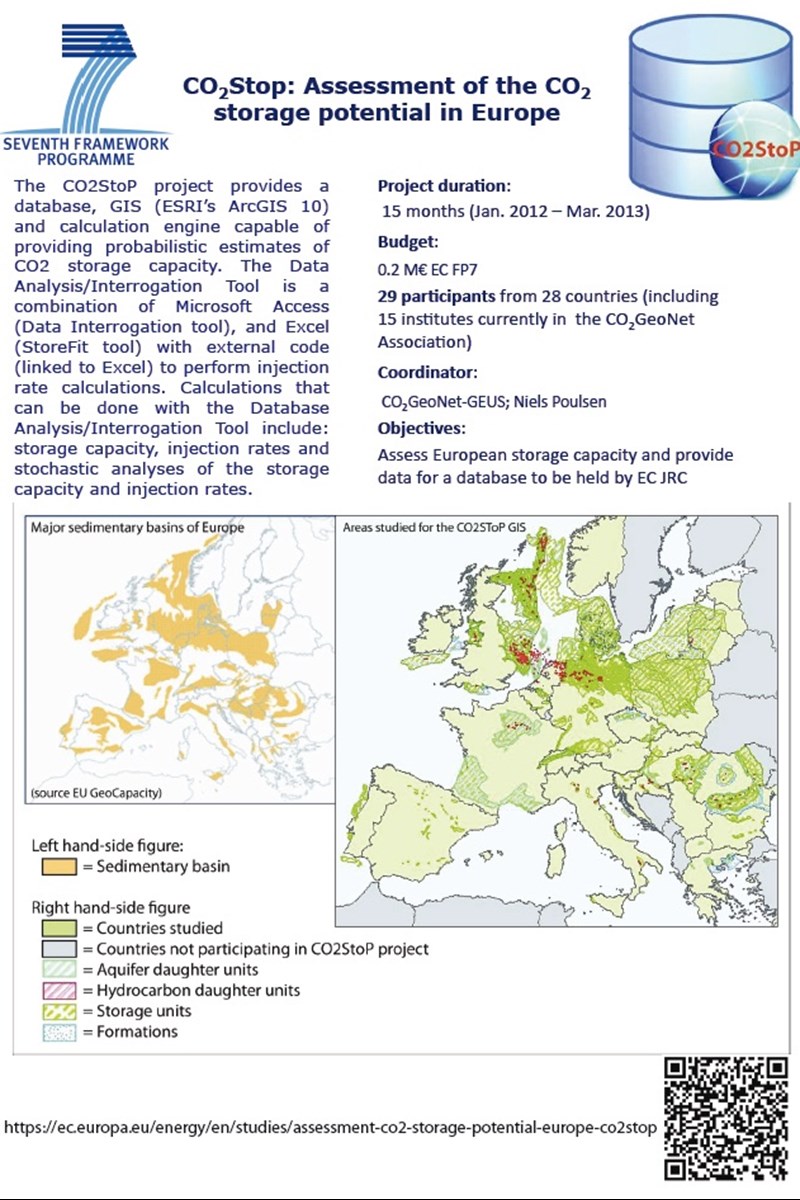

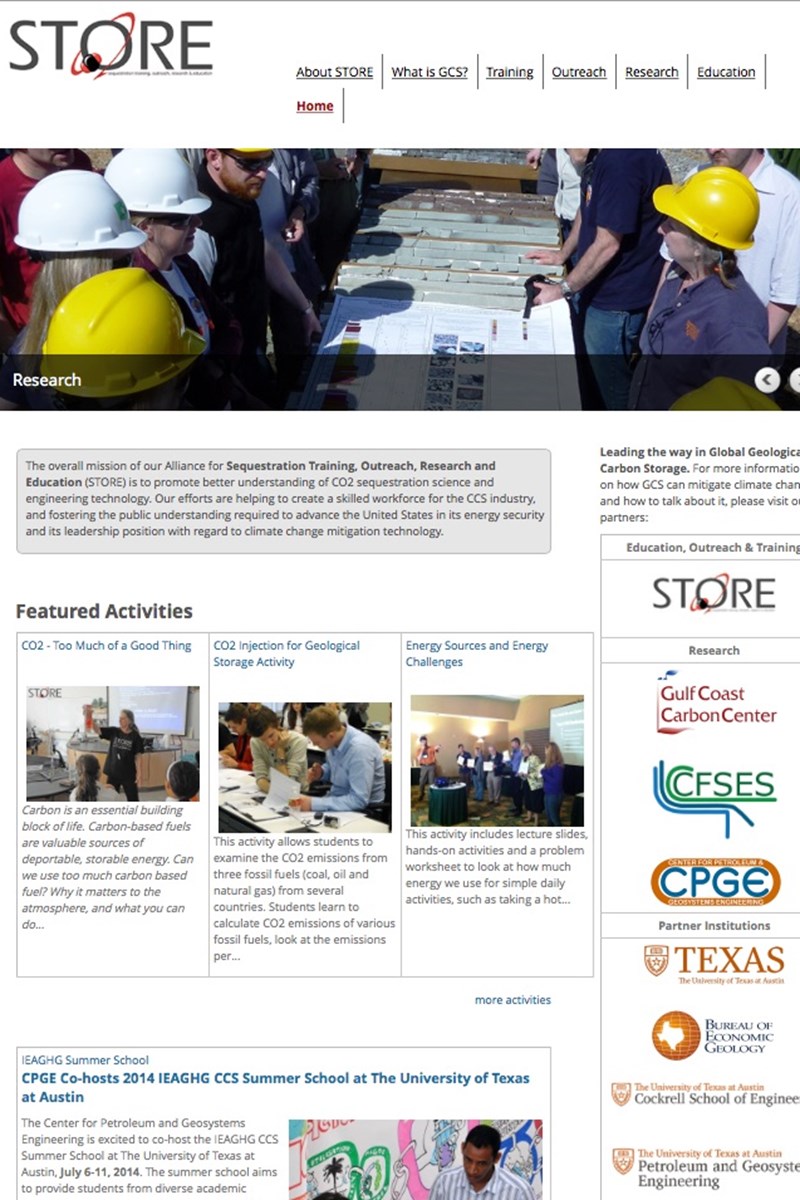
University of Texas at Austin
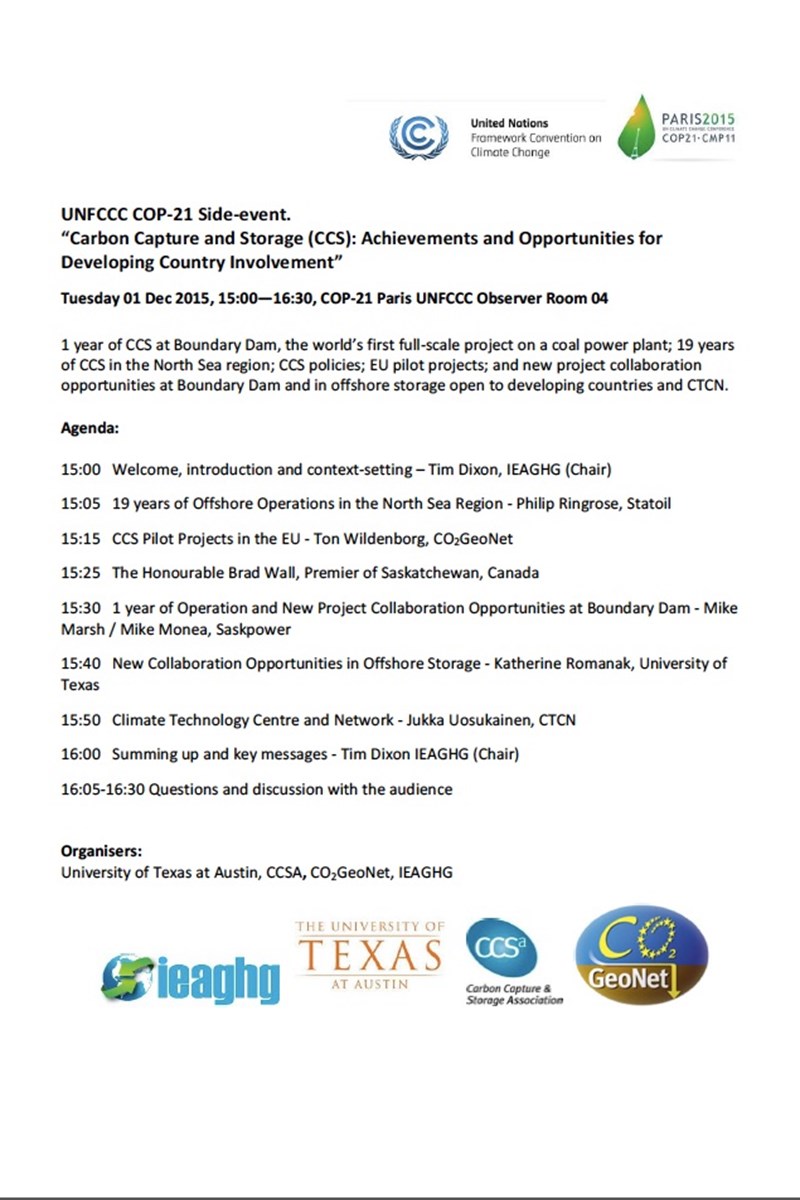
IEAGHG

Club CO2
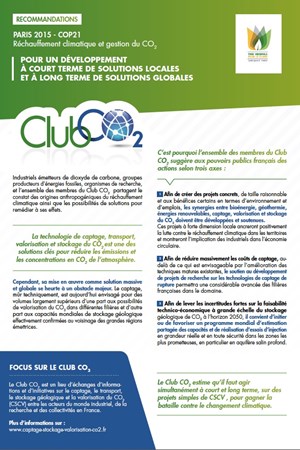
Club CO2
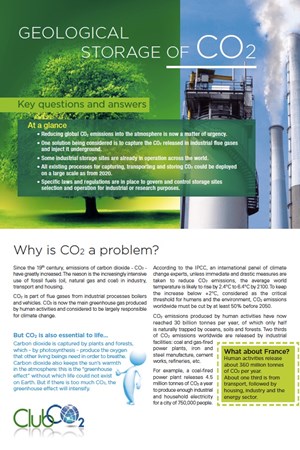
Club CO2
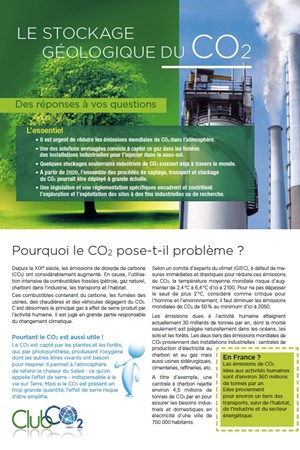
Club CO2
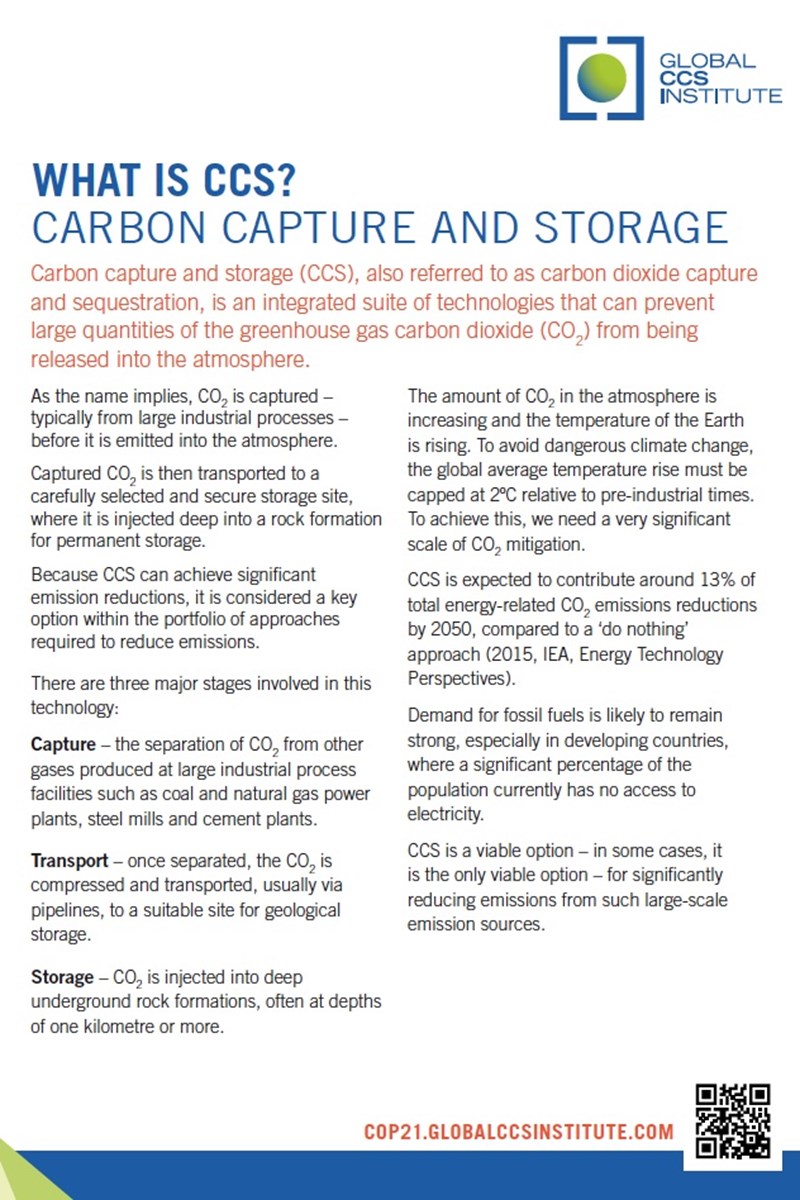
Global CCS Institute
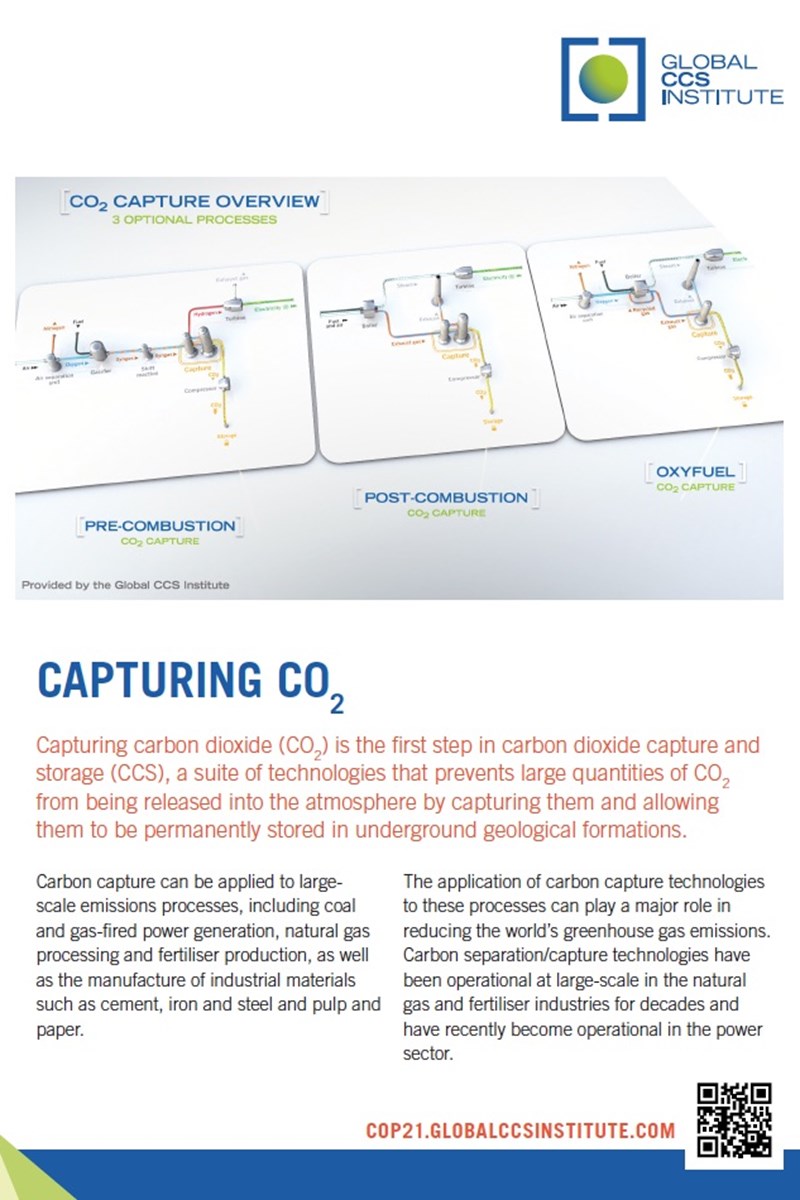
Global CCS Institute
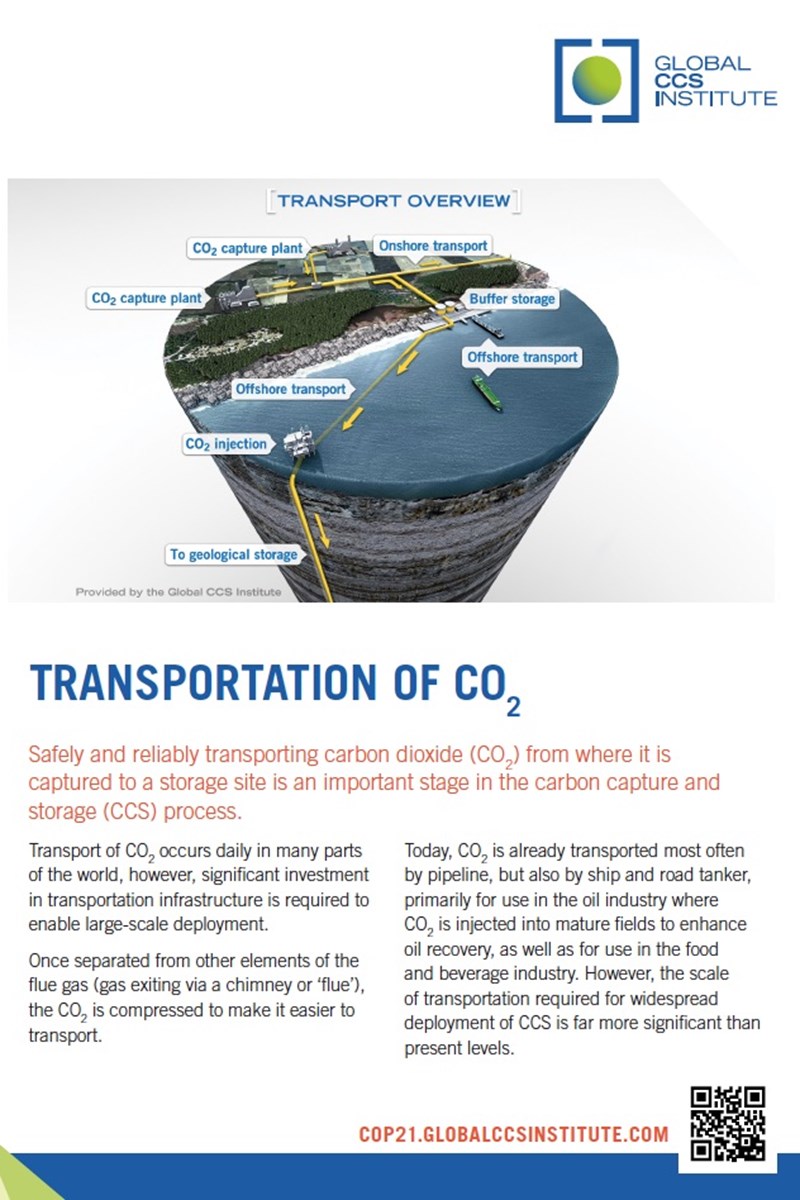
Global CCS Institute
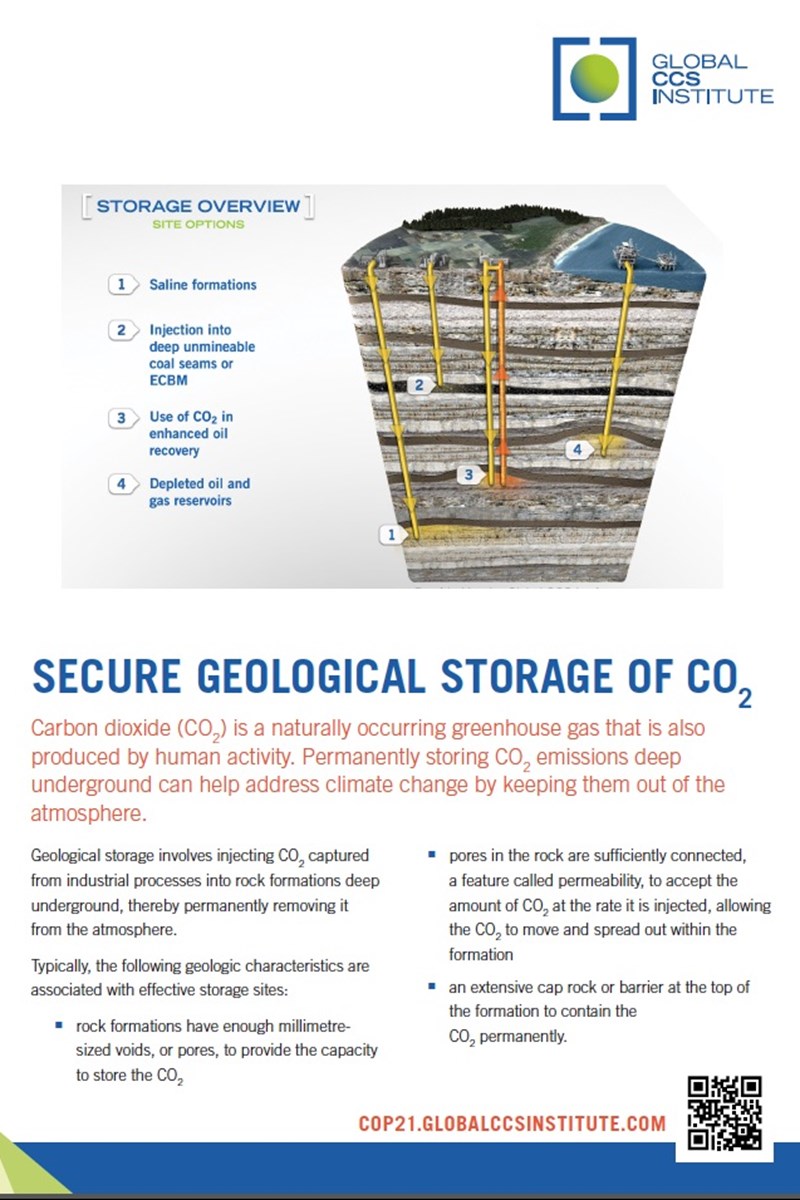
Global CCS Institute
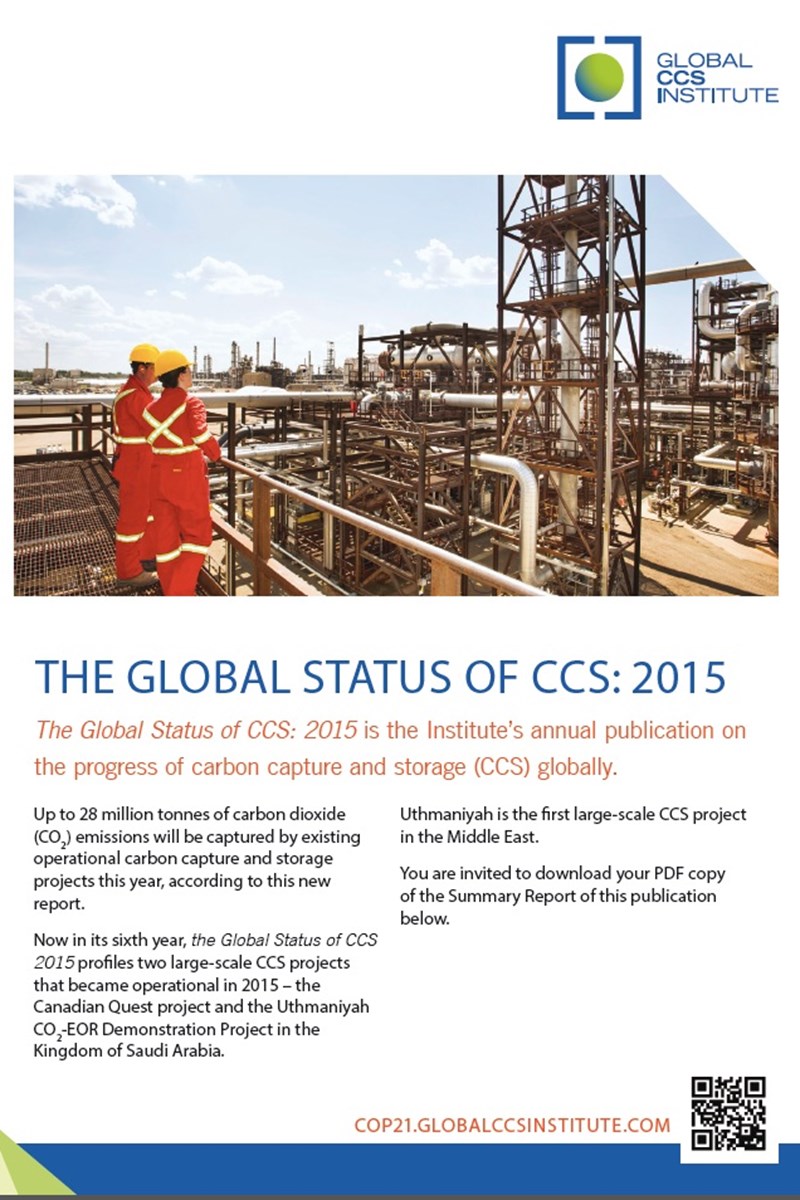
Global CCS Institute
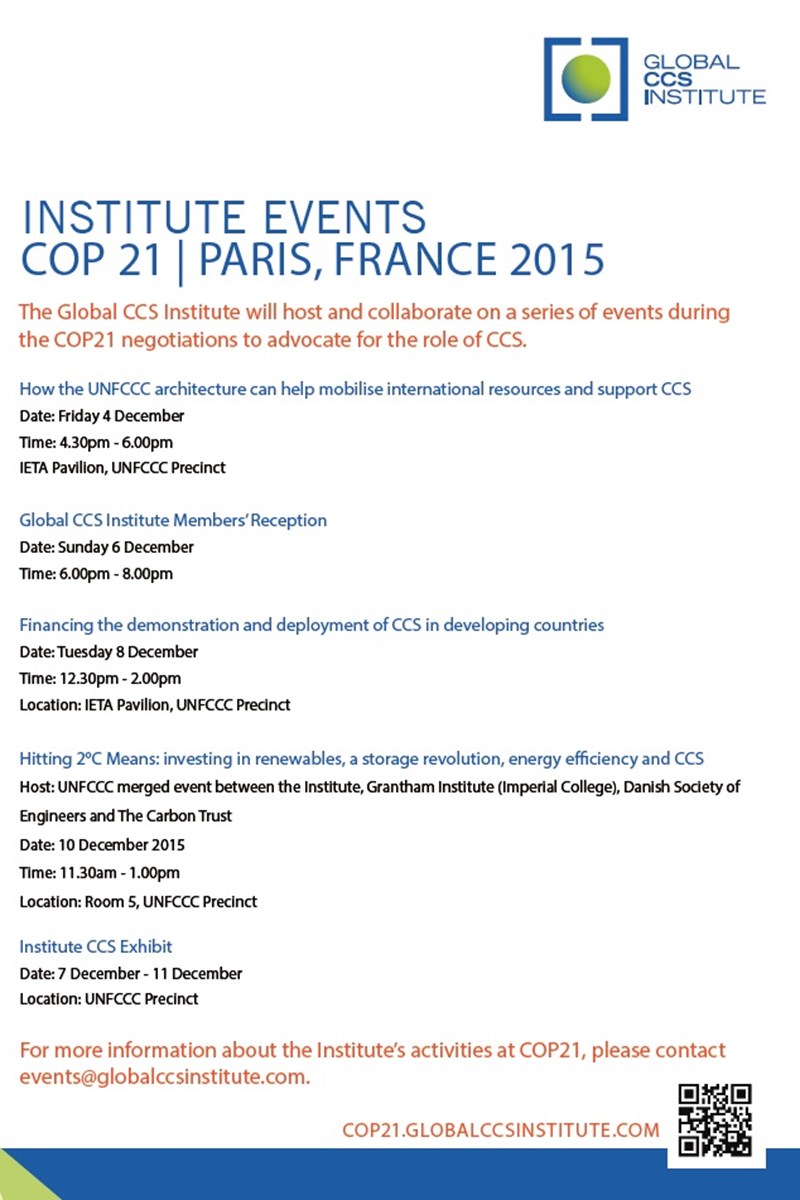
Global CCS Institute
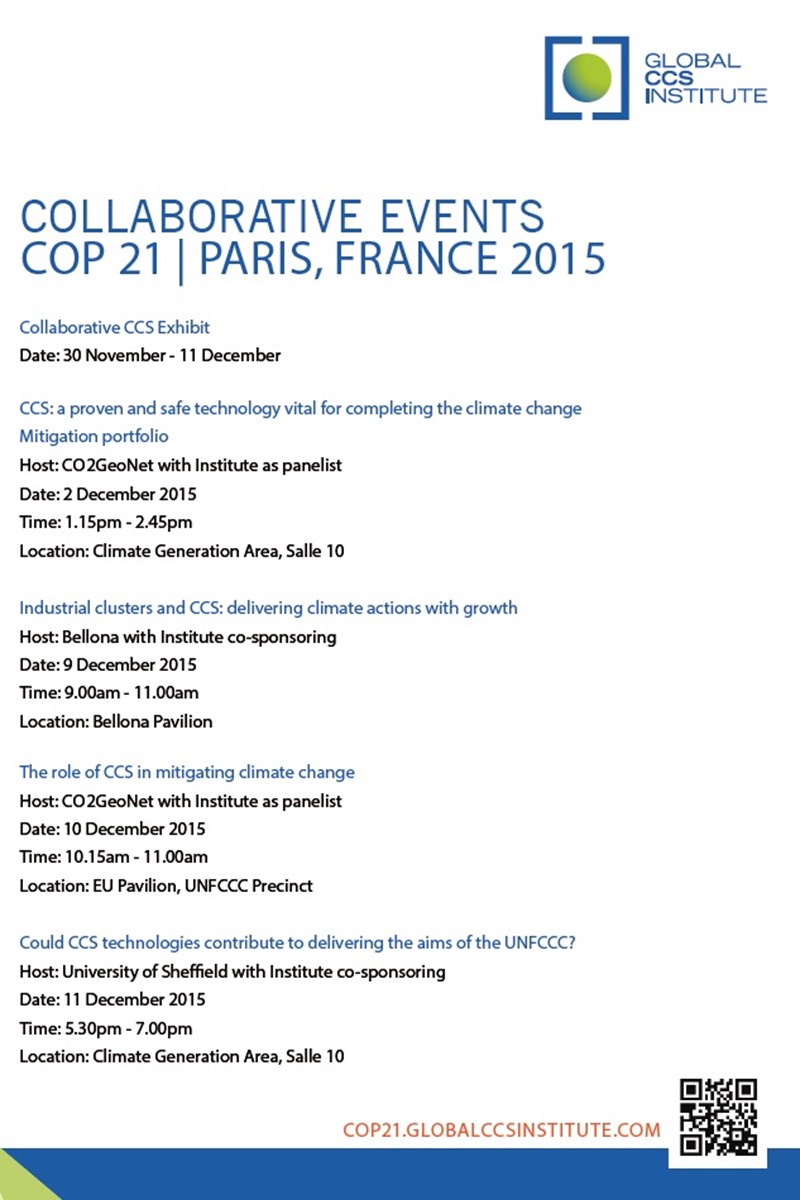
Global CCS Institute
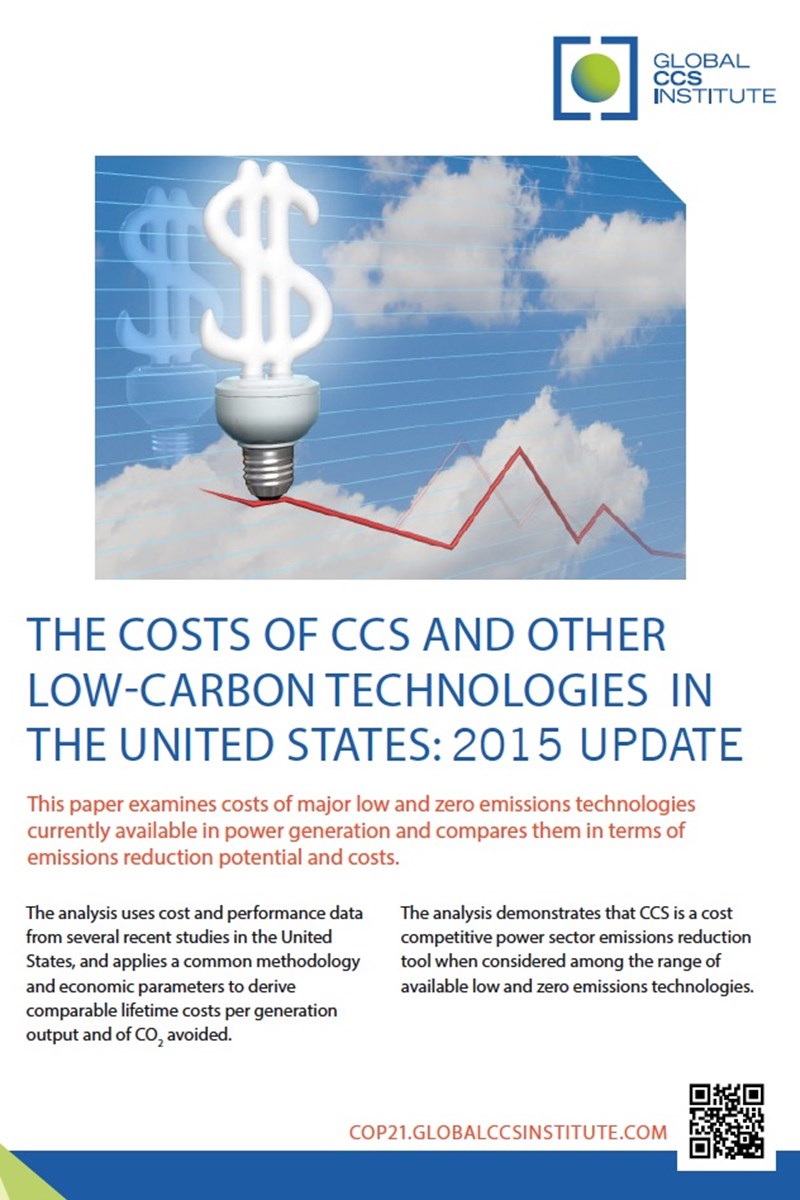
Global CCS Institute

Global CCS Institute

Global CCS Institute
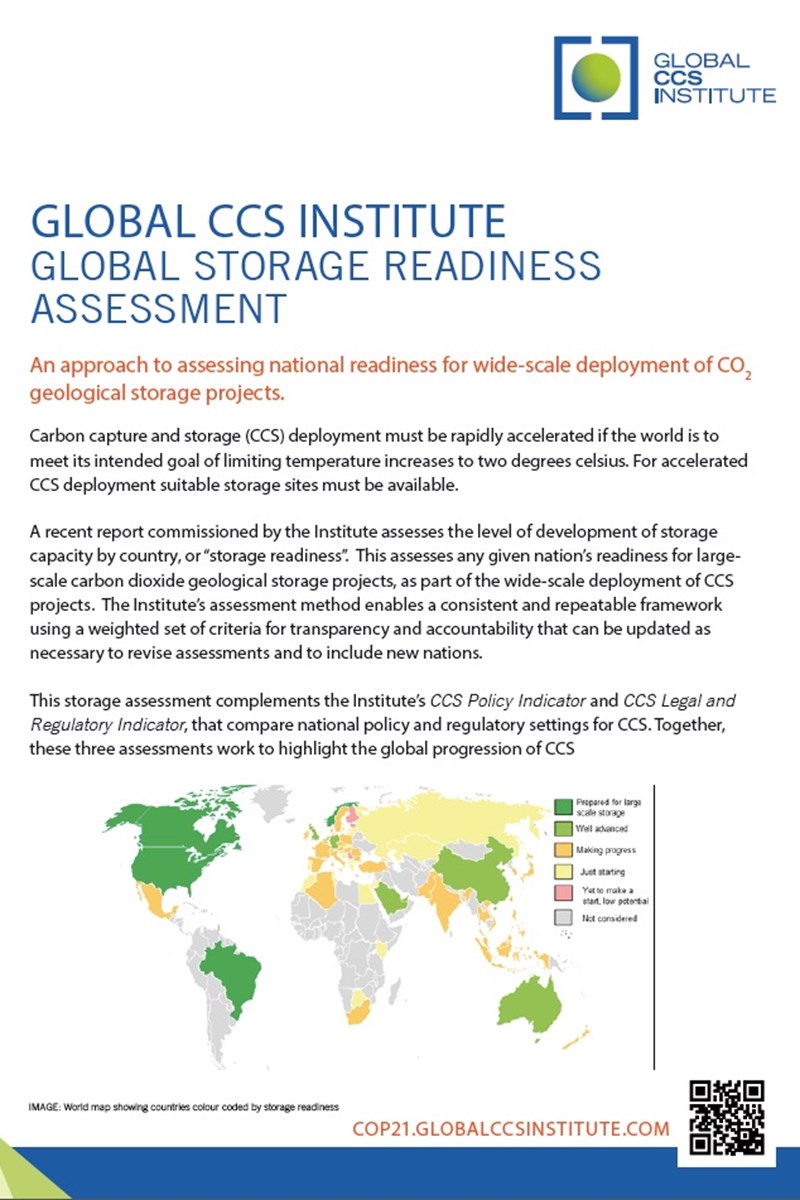
Global CCS Institute

ISO TC265

ISO TC265
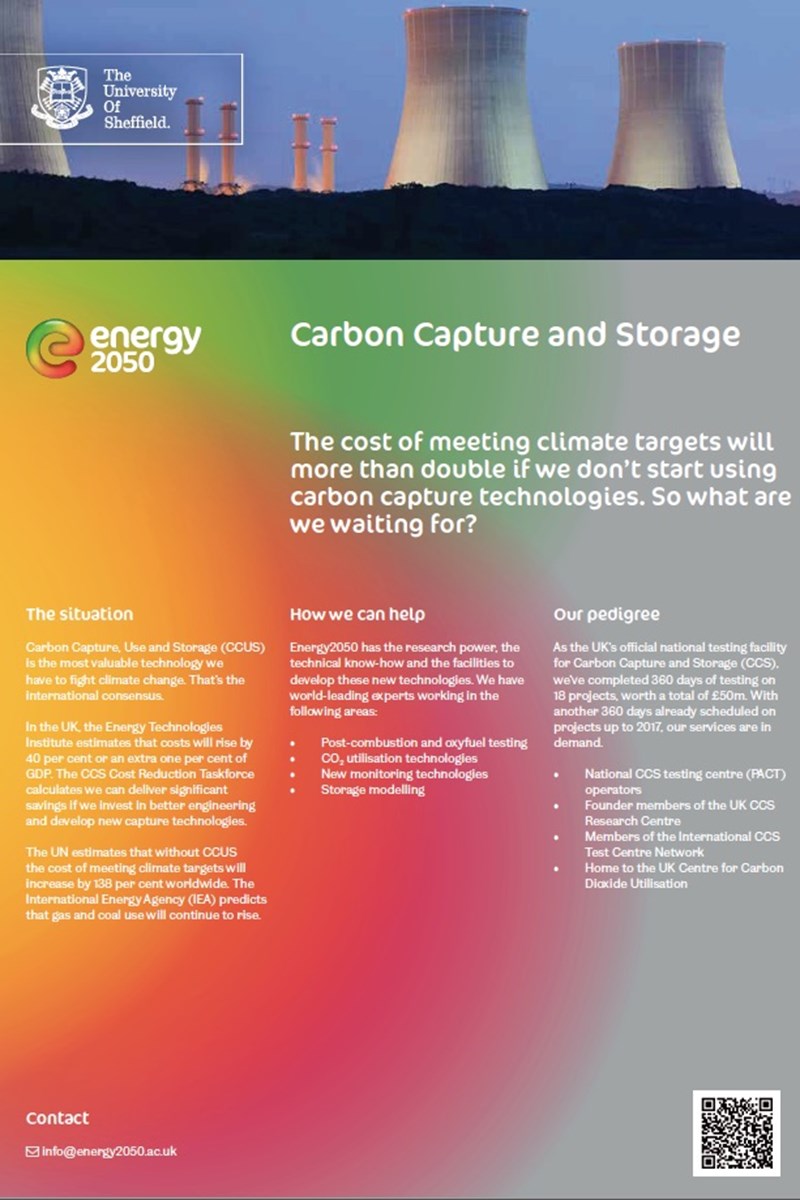
University of Sheffield
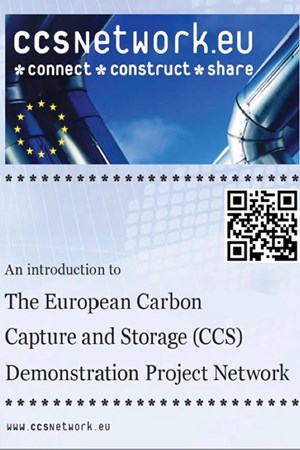
CCS Network EU